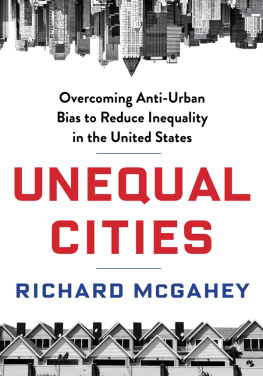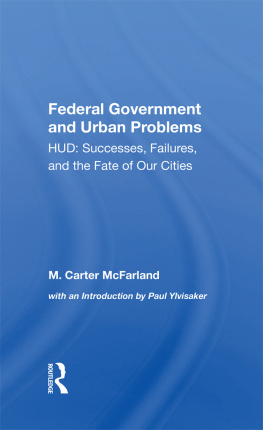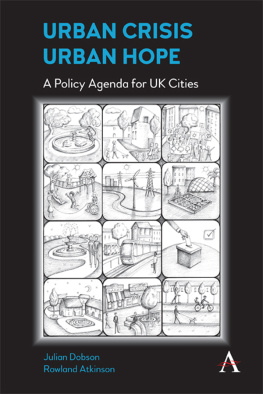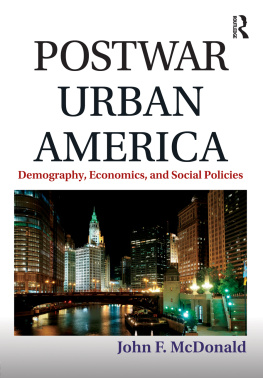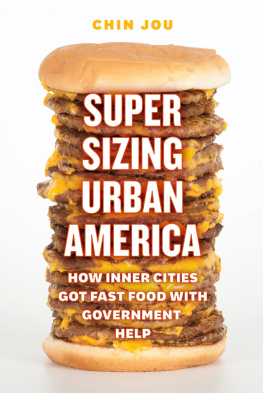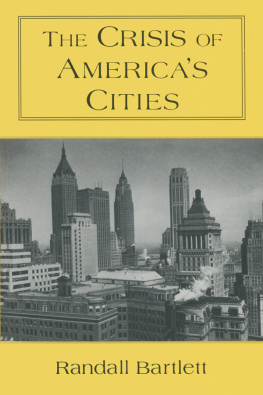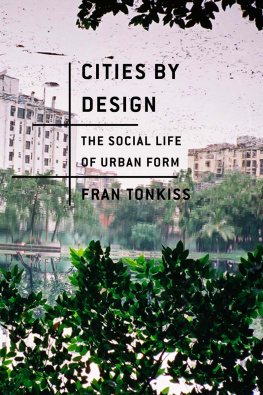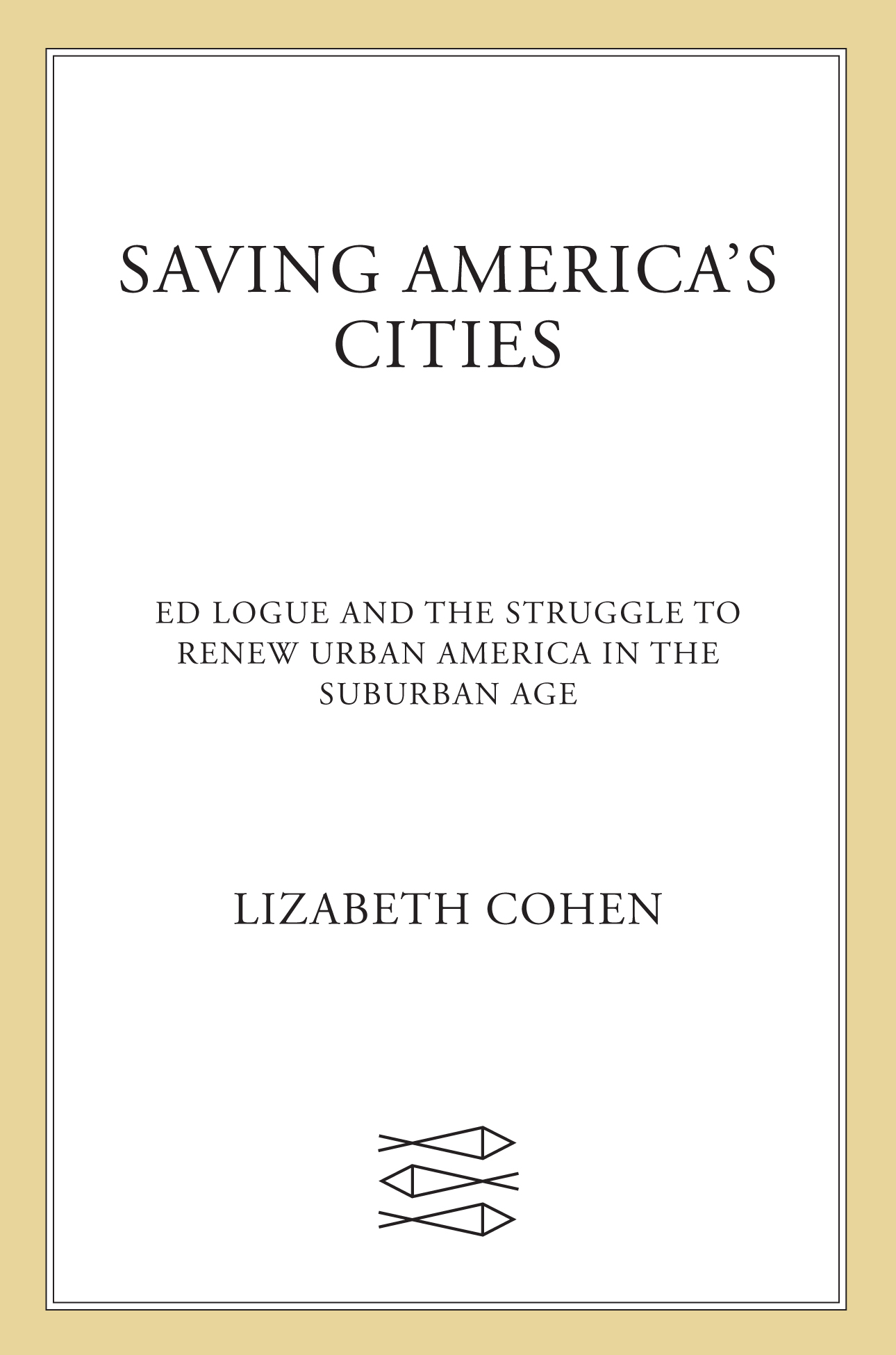The author and publisher have provided this e-book to you for your personal use only. You may not make this e-book publicly available in any way. Copyright infringement is against the law. If you believe the copy of this e-book you are reading infringes on the authors copyright, please notify the publisher at: us.macmillanusa.com/piracy.
In fall 1975, Edward J. Logue, a titan in the redevelopment of Americas ailing cities for a quarter century after World War II, found himself subjected to intense interrogation. The previous winter he had been forced to resign as president of the New York State Urban Development Corporation (UDC), the powerful state agency that he and the former liberal Republican governor Nelson Rockefeller had created in 1968 to tackle the daunting problems of economic decline and inadequate and unaffordable housing encountered by New York States cities. Now Logue was the star witness in the extraordinary public hearings that the states newly elected Democratic governor, Hugh Carey, had convened to investigate malfeasance at the UDC. On the stand, Logue was confronted with
tough questions about the financial practices, internal operations, and reform agenda of this organization that had revolutionized urban renewal in New York State, inspired similar initiatives elsewhere in the nation, and proved the pinnacle of the veteran redeveloper Logues already extensive career. After he led groundbreaking urban renewal efforts in the deteriorating cities of New Haven, Connecticut, in the 1950s, and Boston, Massachusetts, in the 1960s, Logue was hailed as the savior of New York States troubled citiesuntil the UDCs sudden downfall.
In his defense, Logue stressed the UDCs undeniable accomplishments. Faced with an acute housing crisis and New York voters repeated rejection of referenda to remedy it, the UDC had innovated a new public-private funding approach. In place of old-style urban renewal, which depended on federal funds in ever shorter supply with the rising costs of the Vietnam War, Logue and Rockefeller had developed a new paradigm for urban revitalization. They had combined over a billion dollars worth of bond sales to private investors, state appropriations, and still-available, if dwindling, federal dollars to build over 33,000 units of housing, mostly for moderate- and low-income New Yorkers, through 117 residential projects in 50 different communities. The UDC had also developed 69 commercial, industrial, and civic sites and established 3 substantial New Towns, a postwar planning concept that combined residences, workplaces, and cultural institutions within relatively autonomous communities. And it had generated tens of thousands of construction jobs while ensuring many more by promoting the states industrial development. Seeking to avoid pitfalls in previous urban renewal efforts, the UDC had emphasized building on undeveloped land so as not to dislocate current residents and had used its unique authority as a state-level renewal agency to enlist entire metropolitan areas in housing low-income city dwellers.
Despite the UDCs successes, Logue was vulnerable. Nine months earlier the UDC had run out of money and defaulted on $104.5 million in maturing short-term notes and $30 million in bank loans. With Nelson Rockefeller now serving as President Gerald Fords vice president, there was no one in Albany to come to the rescue.
The commission appointed to investigate the UDC deliberated for a year. Logues personal culpability as its kingpin remained a primary focus. In the end, he was exonerated of any wrongdoing, although the UDC was faulted for lax financial oversight. But it soon became clear that the real subject of this inquiry was much bigger than Logue, and even the UDC. Rather, it was about how best to respond to a deepening crisis in American industrial cities that had been struggling economically since the Great Depression, if not before. After decades of dependence on the federal governments tool kit and bank account, first made available under the Housing Act of 1949, Washingtons helping hand was now being withdrawn, most dramatically in 1973 when President Richard Nixon proclaimed a moratorium on all federal spending on housing.
Logue and Rockefellers alternative model for funding urban renewal had endured many tests already. Tensions had grown over striking the right balance between government support and private investment; the respective authority of the mighty, state-authorized UDC, bondholders, and local communities; and how success should be measured. These conflicts were fully on display at the hearings. Logues adversaries charged the UDC not only with fiscal irresponsibility and mismanagement but also with refusing to meet the requirements of the private-sector bankers and bondholders, who were increasingly picking up the tab for public needs. They likewise lambasted the UDC for its big daddy government intrusion into the property rights of individuals and the political autonomy of localities, particularly suburban ones. As Logue confronted his accusers, he felt he was fighting to defend his personal reputation, the UDCs record, and, most basically, what he, as a die-hard New Deal liberal, viewed as governments fundamental responsibility to address societys ills. That bondholders and sellers were now providing capital, he argued, should make little difference.
In the end, these hearings exposed a deep divide between opposing conceptions of the respective roles of the public and private sectors in shaping the future of American cities. They marked the end of an era of confidence in the problem-solving capacity of government, particularly at the national level, and the dawn of a new era of more privatized solutions. Logue would continue to believe until the end of his life that the basic responsibility for subsidizing housing for the low and lower income families is federal. It is everywhere in the developed world. Used to be with us. But Logue would soon learn that the shift to solving urban problems through private-market strategies would only grow after the UDCs demise. And his dream of finding metropolitan solutions to urban inequities would stay stillborn.
A CAREER OF RENEWING CITIES
Ed Logues lifetime of work provides an ideal lens through which to view postwar urban history, because from the early 1950s until his death, in 2000, his career tracked remarkably well with important shifts in approaches to revitalizing American cities. If Logues name is relatively unknown today, he was all over the mainstream press in his own day, dubbed the Master Rebuilder by The Washington Post in 1967, our top city saver by Look magazine in 1969, and Mr. Urban Renewal by The New York Times in 1970. Newsweek in 1972, with tongue in cheek, anointed him one of the most impressive movers and shakers of subsidized construction since the time of King Tut. Logue got his start in the field at the age of thirty-three, when New Havens just-elected reform Democratic mayor, Richard Lee, appointed him to lead the citys major new urban renewal effort. Like many other midsize, old industrial cities, New Haven had been declining since the 1920s, a situation only worsened by the Great Depression. Although war production had given its increasingly obsolete nineteenth-century-era industries a temporary boost, when World War II ended, the postwar future looked bleak. Moreover, increasing numbers of middle-class residents were moving into new suburban communities mushrooming outside New Havens borders, with businesses and retail stores following suit. Downtown New Haven, once a regional hub, was becoming noticeably pass, threatening the citys statureand its coffers, already diminished by having so many Yale University and county buildings off the tax rolls.


